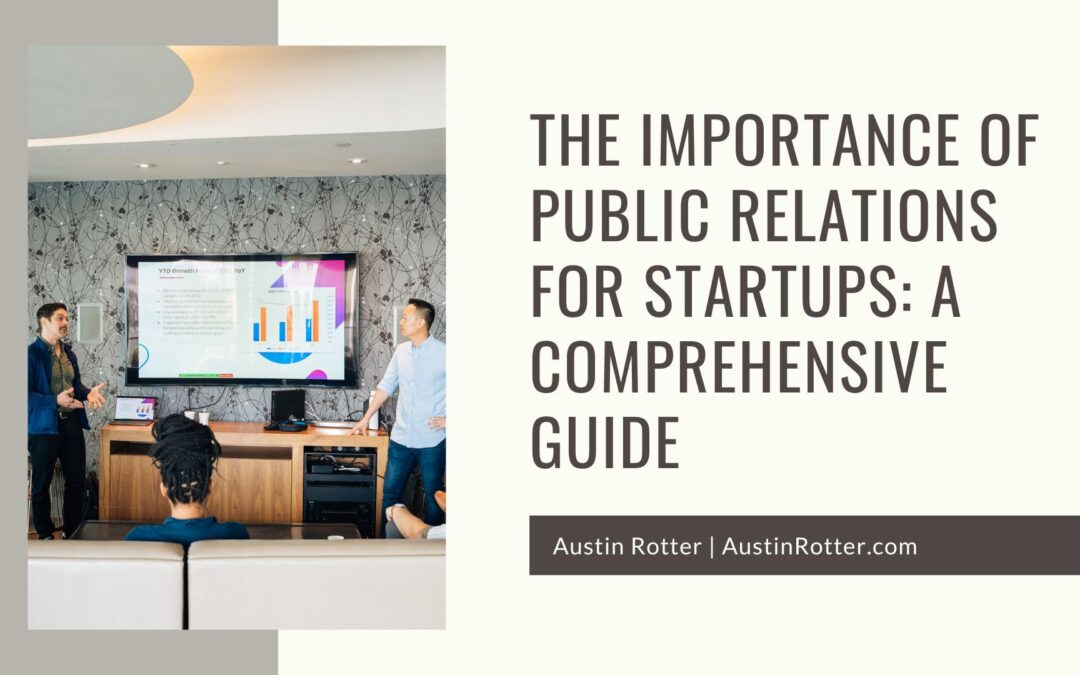When starting a new business, there are a million things to consider. It can be daunting, from developing a product to finding funding, building a team, and launching your brand. One thing that often gets overlooked in the early stages of a startup is public relations. However, paying attention to public relations can be a costly mistake. In this blog post, we’ll explore the importance of public relations for startups and provide a comprehensive guide to getting started.
First, let’s define what we mean by public relations. Public relations, or PR, manages communication between an organization and its stakeholders. This can include customers, investors, employees, the media, and the general public. PR aims to build and maintain a positive image of the organization and its products or services.
Why is PR so important for startups?
Here are a few key reasons:
- Building brand awareness: No one knows who you are when you start. PR can help get your name out there and build brand awareness. This can be through media coverage, social media, or other channels.
- Establishing credibility: To be successful, startups need to establish credibility with their target audience. PR can help position your brand as a thought leader in your industry and build trust with potential customers.
- Attracting investors: Investors want to see that your startup has a solid plan for growth and a strong team in place. PR can showcase your strengths and attract the attention of potential investors.
- Crisis management: Things can go wrong no matter how well you plan. PR can help mitigate the damage and protect your brand’s reputation when a crisis hits.
How to Get Start
Now that we’ve established why PR is essential for startups let’s dive into how to get started.
- Define your goals: Before starting any PR efforts, define your goals. Are you looking to build brand awareness? Attract investors? Position yourself as an industry leader. Once you know your goals, you can develop a strategy.
- Identify your target audience: Ask yourself who you are trying to reach with your PR efforts. Are you targeting customers, investors, or the media? Understanding your target audience will help you tailor your messaging and choose the channels to reach them.
- Develop your key messages: What do you want people to know about your brand? What sets you apart from the competition? Develop key messages that clearly and concisely communicate your value proposition.
- Build relationships with the media: The media can be a powerful ally in building brand awareness and establishing credibility. Reach out to journalists who cover your industry and offer yourself as a source for stories. Build relationships with reporters and editors so that they think of you when they need a quote or a story idea.
- Leverage social media: Understand that social media can effectively build your brand and engage with your target audience. Develop a social media strategy that aligns with your PR goals and target audience. Post regularly, engage with your followers, and monitor social media for mentions of your brand.
- Monitor your reputation: In today’s digital age, monitoring what’s being said about your brand online is essential. Set up Google Alerts for your brand name and monitor social media for mentions. Respond to negative comments and reviews in a professional manner.
- Be proactive: Don’t wait for a crisis before thinking about PR. Develop a crisis communication plan beforehand so that you’re prepared to respond quickly and effectively if something goes wrong.
Public relations is critical to any startup’s success. By building brand awareness, establishing credibility, attracting investors, and managing crises, PR can help startups achieve their goals and grow their businesses. By following the steps outlined in this guide, startups can develop a strong PR strategy that sets them up for success.
